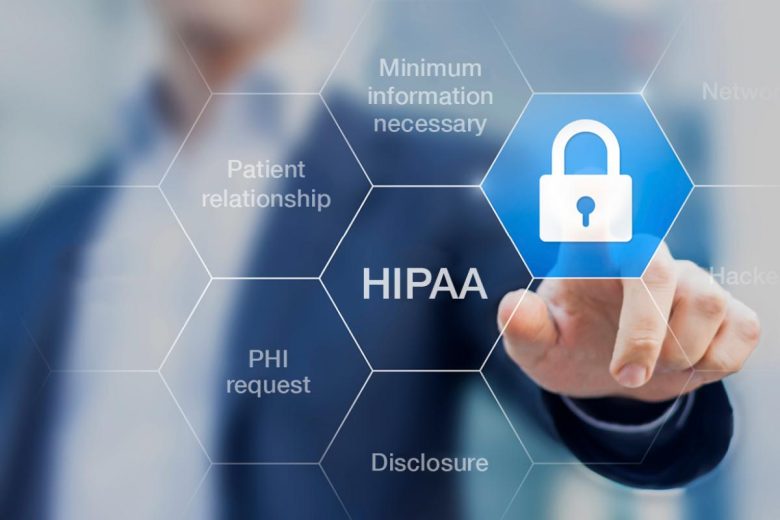In a cybersecurity context, compliance means meeting requirements, building up a structure to measure risks, and preventing data infringements by controlling. Government, local authorities, law, and various industries put cybersecurity compliance requirements into effect and expect companies to comply with them.
The first reason for this is the quantity of vulnerable data that companies embodied. On one side, there are companies’ data such as trademark rights, confidential resolutions, and trade secrets and on the other side employees, stakeholders, and clients’ sensitive data is questioned. The other reason is that companies are targets for cybercriminals and they are susceptible to any attack. Even in the first quarter of 2024, many companies have fallen victim to cyber-attacks and it costs their financials and also reputation.
Where should you start?

Source: cloudcomputing.id
To determine which compliance regulation you need, you should ascertain what kind of data you process, store, share, and use. Because each compliance regulation aims to protect specific data and impose obligations on companies according to their fields of activity. The location of the company’s headquarters and branches is also decisive to state regulations that they obliged.
Data can be mainly classified as general personal data and sensitive data. General personal data comprises basic information such as first and last name, date of birth, and address. On the other hand, racial or ethnic origin, health information, and religious or political beliefs are examples of sensitive personal data. After deciding which data you process in your business, you can start to bring your company compatible with regulations.
Top 3 reason to consider cyber security compliance as a priority in your company
1. Meet the standards both in a national and an international basis

Source: navexglobal.com
Cybersecurity compliance requires a risk management system that consists of documentation, a monitoring system, regular audits, training programs, and security policies. Documentation allows you to see what kind of and how much data you process in your business and enables you to supervise broadly. It also raises your accountability against regulatory bodies. By giving adequate attention to standards, you can meet compliance requirements.
Security policies may differ between national and international bases. If you are conducting a business internationally you have to meet international obligations. To avoid breaches, getting professional legal support is recommendable. Because even continents have different regulations like GDPR in the European Union. And it may be challenging for your company to legalize the whole activity.
2. Prevent your company from penalties
Some compliance regulations have sanctions with them and they aim to deter companies from prohibited activities. Administrative fines and legal fines are the most common ones. To prevent your company from penalties you should show strict adherence to cybersecurity compliances. Regulatory bodies monitor your activities in terms of data compliance and audit them constantly. If they detect any misconduct, they give a warning and according to the size of the error, they penalize you.
These penalties have two purposes. Firstly, they want to protect third-parties interests with the threat of punishment. Because, if these regulations have no sanctions, no one will try to comply with them. Secondly, they want to warn other companies and try to make them aware of the consequences of not complying.
3. Protect your company against breaches and risks

Source: entrepreneur.com
Risks are not restricted by penalties. Reputational loss is another significant threat to your company. As the importance and awareness of cybersecurity compliance grow rapidly, people do not want to put their data at risk. Any breach can result in reputational loss and a decline in depreciation in a stock market. Also, you should consider your intellectual property in such a competitive environment.
Cybersecurity Compliance Requirements
1. GDPR
General Data Protection Regulation (GDPR) is a worldwide law that was drafted and passed by the EU and was put into force in 2018. Regardless of where the business or organization is located, GDPR applies to any enterprises that process data of people in the EU. This law puts security and privacy standards regarding data protection. There are main principles in the code such as legality, accuracy, data minimization, and purpose limitation.
Legality means that your data processing has to comply with the law. And personal data that you process must be accurate and current. You must be sure they are up-to-date and truly belong with the person. It is also important to store data only if it is necessary. It means you should not collect or store data more than you need. It must be restricted by the purpose of the process. Lastly, your purpose of the process must be legitimate.
GDPR has strict regulations on consent. In a GDPR and data processing context, consent stands for permission that the people give you to process their data. According to it, consent should have some qualifications such as relying on the information, freely given, limited by subject, and clear.
2. HIPAA

Source: ama-assn.org
The Health Insurance Portability and Accountability Act was drafted and passed by the U.S. in 1996. Despite GDPR, HIPAA is in effect only in the US. This Act has regulations that protect health-related information such as medical, prescription, admission, and appointment records. Personal Health Information (PHI) is considered sensitive data and aims to protect personal data against abuses and breaches.
Organizations that provide healthcare and do business related to health are obliged to meet HIPAA standards. If you consider your company as health information related or you keep personal health information in some way you need to transform your activities as HIPAA compliant.
Cybersecurity compliance requirements do not consist only of GDPR and HIPAA. There are other requirements in force such as FISMA and ISO/IEC 27001. You can read more about these requirements and widen your knowledge.
Final Words
Cybersecurity compliance is indispensable and regardless of the size of your business, you are obliged to comply with the standards. You must know what kind of data you process and what are your obligations. It is crucial to determine the appropriate compliance regulation that you need to comply with. If you want your company to be cybersecurity compliant and avoid penalties, you must consider cybersecurity compliance as a priority.




